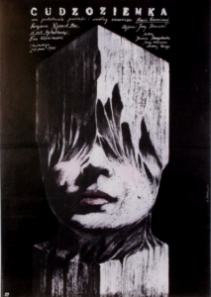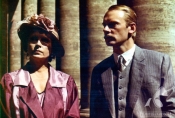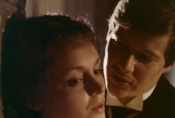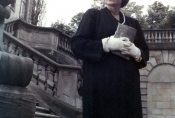THE STRANGER [1986]

year:
- 1986
release date:
- 17 XI 1986
runtime:
- 99 min
directed by:
- Ryszard Ber
written by:
- Maria Kuncewiczowa based on her own novel
director of photography:
- Jerzy Stawicki
cast:
- Ewa Wiśniewska [Róża], Joanna Szczepkowska [Marta], Jerzy Kamas [Adam], Andrzej Precigs [Władyś], Katarzyna Chrzanowska [young Róża], Mirosław Konarowski [Michał Bądzki], Małgorzata Lorentowicz [Luiza], Henryk Machalica [doctor Gerhard], Igor Śmiałowski [ambasador], Marek Walczewski [January Bądzki, a violinist], Eugenia Herman [Sabina, Mart’s maid], Jolanta Grusznic [Jadwiga], Andrzej Grąziewicz [Paweł], Hanna Giza [Sophie]
edited by:
- Alina Faflik
production design:
- Andrzej Borecki
produced by:
- Przedsiębiorstwo Realizacji Filmów Zespoły Filmowe
executive producer:
- Jerzy Kajetan Frykowski
music by:
- Anna Iżykowska-Mironowicz
awards:
-
- Polish Feature Film Festival Gdańsk 1986: Special Jury Award, award for the best female actor in a leading role for Ewa Wiśniewska
- 1987 Head of Cinematography Award for filmmaking achievement for Ryszard Ber, Maria Kuncewiczowa, and Ewa Wiśniewska
- The "Trybuna Ludu" Award 1987 for Ewa Wiśniewska
About the film
In Warsaw, Róża falls in love with Michał, the son of her music teacher. After her beloved betrays her, the girl loses faith in the world. She decides on a marriage of convenience and stops developing her musical talent. She blames this mainly on her husband; for many years it is Adam who is the outlet for her frustration. She wants to realise herself solely through her children.
Her beloved son, Władyś, takes a job as a diplomat and her daughter Marta becomes a singer. Marta’s career becomes the sole focus for her mother. Constantly embittered, she is the terror of the family. Treating heart disease, she goes to Berlin and meets Dr. Gerhard. The doctor reaches the deeply hidden, positive side of her personality. He sparks the return of her youthful enthusiasm. The heroine suddenly rejects the baggage of several decades of her misspent life. She dies at peace with her loved ones and the world.
A person incapable of love cannot experience happiness nor fully develop the talents they possess. In an impulsive act of youthful rebellion, Róża suppresses her ability to love − finding it again only at the end of her life. But the brief moments of this peculiar state of grace are more important than the misspent decades previously, because only love makes it possible to accept the world.
Joanna Piątek, Leksykon polskich filmów fabularnych, Warszawa 1996







